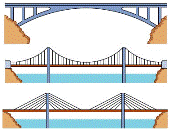Civil and Environmental Engineering, Department of

Department of Civil and Environmental Engineering: Faculty Publications
Document Type
Article
Date of this Version
7-2011
Citation
APPLIED AND ENVIRONMENTAL MICROBIOLOGY, July 2011, p. 4313–4317; doi:10.1128/AEM.00421-11
Abstract
Chronic wasting disease (CWD) and scrapie can be transmitted through indirect environmental routes, possibly via soil, and a practical decontamination strategy for prion-contaminated soil is currently unavailable. In the laboratory, an enzymatic treatment under environmentally relevant conditions (22°C, pH 7.4) can degrade soil-bound PrPSc below the limits of Western blot detection. We developed and used a quantitative serial protein misfolding cyclic amplification (PMCA) protocol to characterize the amplification efficiency of treated soil samples relative to controls of known infectious titer. Our results suggest large (104- to >106-fold) decreases in soil-bound prion infectivity following enzyme treatment, demonstrating that a mild enzymatic treatment could effectively reduce the risk of prion disease transmission via soil or other environmental surfaces.


Comments
This article is a U.S. government work, and is not subject to copyright in the United States.